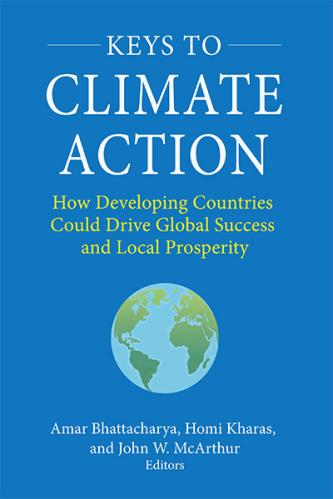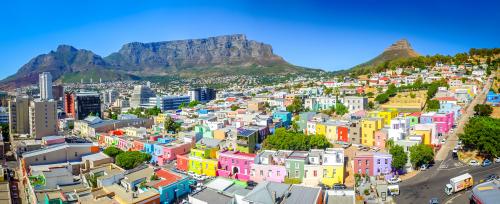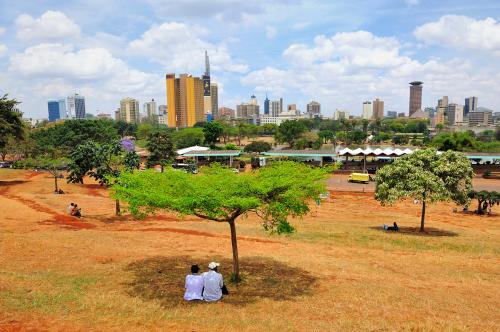This chapter was published in the edited volume “Keys to Climate Action: How Developing Countries Could Drive Global Success and Local Prosperity.”
How should countries with many people living in absolute poverty combat climate change and energy transition while addressing poverty, creating jobs, and making progress on other sustainable development goals? This working paper focuses on Nigeria, highlighting the challenges and opportunities of implementing its green transition objectives. Archibong and Osafo-Kwaako discuss the interrelated challenges for Nigeria: high climate vulnerability, low human development indicators, low energy access, and high energy cost. Then, the authors review the Nigerian government’s policies and barriers to support the green transition and discuss institutional arrangements and other priorities that could help implement climate-related activities in Nigeria. The central argument is that while climate change poses a risk to Nigeria’s development prospects, it also provides opportunities for Nigeria to rethink the design and implementation of its national development programs. A coherent development plan focusing on the climate investment opportunity could enable Nigeria to improve its development indicators while pursuing its international climate commitments.
Interview with the authors
What is one main message from your chapter?
Despite Nigeria’s heavy reliance on the oil and gas sector, a green, just transition is not only possible, it is necessary to achieve poverty reduction, expand employment opportunities and boost economic growth for the millions of households in the country. There are various effective policies to boost domestic and international financing and invest in climate mitigation and adaptation measures that can deliver a growth-enhancing green transition.
What presents the biggest opportunity?
A green, just transition is possible and can help improve energy access, cut firm production and reduce poverty and inequality through improving the health and labor market outcomes of Nigeria’s population. Policies and investments focused on mitigation, through both emission fees and more efficient commercialization of the gas sector domestically, and mobilizing international financing internationally, and adaptation, through investment in increasingly lower cost renewable energy and climate-smart architecture, can produce huge economic returns by 2030, if promptly and properly implemented.
What serves as the biggest challenge?
The Nigerian economy’s heavy dependence on the oil and gas sector for government revenue makes both funding and facilitating a green transition a major challenge. Poverty (both income poverty and energy poverty in the case of the country’s lagging electricity access) and regional inequality make the majority of households extremely vulnerable to climate shocks. Green transition policies must jointly tackle poverty reduction and climate mitigation measures/a shift away from fossil fuels with policies that provide the most gains to the most vulnerable regions and populations in the country, so as not to worsen economic inequality.
What gives you the most hope?
Nigeria has a history of successful implementation of large-scale policies and projects that reduced poverty and inequality for millions of its residents. Policies like the country’s 1976 Universal Primary Education reform which significantly improved access to primary education for millions of people, show that the country has the potential to enact large-scale, sweeping, effective, welfare-enhancing reforms. Recent government commitments through the 2021 Climate Change act provides an institutional framework for large scale reforms to facilitate a just transition that would similarly transform the lives of millions of the country’s population, given prompt and proper implementation.
The Brookings Institution is committed to quality, independence, and impact.
We are supported by a diverse array of funders. In line with our values and policies, each Brookings publication represents the sole views of its author(s).









